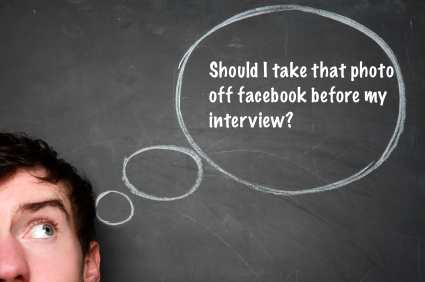How Recruiters Use Social Media
It is common knowledge that recruiters use social media as a tool to assess potential candidate’s suitability and eligibility. However what may be surprising is the sheer volume of recruiters who are now making use of social media as part of the recruitment process. What may be more surprising is that the same recruiters are reported to be checking social media for grammatical and spelling errors.

A recent survey conducted by the recruitment tracking company Jobvite, revealed that a total of 92% of recruiters are utilising social media in the recruitment process. This is an increase of 3% on the figure of the previous year which stood at 89%. These figures are based on a study conducted on over 1000 companies; the companies were mainly based in the U.S. Although similar studies, conducted in both the U.K. and Europe have yielded similar results. Businesses are utilising social media as a tool to engage with candidates on a personal level whilst maintaining professional appearances. As a tool social media is a great way for businesses to engage with candidates who are appropriate for the position or company but have no intention to apply. Within the recruitment industry these candidates are referred to as “passive candidates”.
Companies and businesses are using social media for far more than marketing. Recruiters use social media to connect and engage directly with candidates, message potential candidates and post job vacancies in relevant groups. Simply put recruiters are using social media to gain direct access to talent. You cannot opt out of social media examination simply by not including your profile details in your resume or application.
The same survey by Jobvite revealed that 73% of recruiters will make use of your social media pages as part of the process. Your social media tools are a useful tool to prospective employers in assessing you as a candidate. Recruiters have reported that candidates who do not have a Twitter, Facebook and LinkedIn account can be viewed as irrelevant and disconnected. Other recruiters have reported that a lack of social media presence has been viewed with scepticism, as if the candidate has something to hide.

How Your Information Affects the Decisions They Make
The uses of social media for recruiters are expansive; a quick view of a profile provides an insight into the personality of a candidate. Recruiters use this information to assess whether a candidate will fit into the culture of the business.
Again what you choose to post on your profile can have either a negative or positive effect on the portrait you paint of yourself for potential employers. To demonstrate 80% of recruiters viewed candidates who were either linked to or members of professional groups positively. Two thirds of recruiters viewed candidates who had been involved in charity or volunteer work positively.
However with good also comes bad. References to drug use, alcohol consumption and comments of a sexual nature were all reported to have negative effects on how recruiters viewed candidates. To demonstrate, 78% of recruiters viewed evidence of drug use negatively, the figure for comments of a sexual nature is slightly lower at 67%, whereas the figure for alcohol consumption stood at 47%. What is revealing, however is that recruiters found spelling and grammatical errors to have a greater negative impact on a candidate than evidence of binge drinking. 54% of surveyed recruiters reported they saw grammatical and spelling errors as a negative factor, compared with the 47% negative reaction to alcohol consumption.
